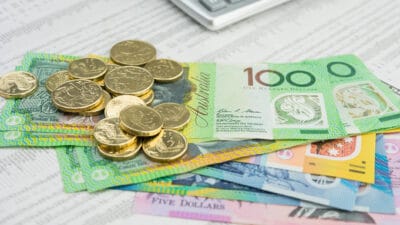Selling ASX shares is difficult.
"Unlike with the decision to make an investment, selling it requires you to undo something in which you have already invested intellectual, emotional and financial capital," Fidelity investment director Tom Stevenson wrote in the UK's The Telegraph.
"That is psychologically hard to do."
There is plenty of advice everywhere — including here at The Motley Fool — about which stocks to buy, but you only see a fraction of that volume focusing on selling.
But even the hardiest long-term investor needs to offload their shares sometime, so it's worth thinking about why and when you would do that.
Stevenson helpfully laid out some of the valid reasons why an investor should sell, and some of the worst drivers for doing so.
Good reason #1: investment thesis is broken
Many amateur investors forget why they bought certain shares in the first place.
And that's why, later down the track, they struggle to figure out whether they should sell.
"It is impossible to judge whether your investment thesis has changed if you don't know what it was at the outset."
This is why Stevenson has a valuable tip for all investors.
"Write it down. Keeping an investment diary can give you something tangible against which to measure your decision," he said.
"It's good to remind yourself why you got together all those years ago!"
Good reason #2: bad news
If the circumstances for the business have changed, then it might be time to consider cutting the stock loose.
Of course, the chances are that by the time you've realised this, so has everyone else.
According to Stevenson, while markets are "pretty good at pricing in change", it is often terrible at realising "the scale or durability" of the new situation.
"This is why selling after bad news can still make sense," he said.
"Humankind cannot bear very much reality. It can take quite some time for the penny to drop, and a share that has fallen by 50% can still lose another 100%."
Good reason #3: you made a mistake
An excellent reason to sell shares is that buying it in the first place was an error of judgement.
"We all do it. Indeed, a successful investor can be one who simply makes more good decisions than bad.
"If you run your profits and cut your losses, a hit rate of only 50% might be good enough."
Good reason #4: reduce risk
Reducing the risk of sticking with a winner is an "underrated reason" to sell shares, reckons Stevenson.
If you have a multi-bagger on your hands, just sell the amount that you invested in the first place. From that point on you can't do any worse than a 0% loss.
Stevenson remembers he once told a friend to do this.
"At the time he could have done this by selling as little as a third of his holding. Doing so would have ensured that the worst possible outcome would be just getting his money back.
"He didn't and it wasn't."
Good reason #5: changes in personal circumstances
There are a myriad of reasons in your personal life that could prompt you to sell shares.
"Your risk appetite may have changed, and you can no longer tolerate the potential downside of an investment."
One day you might just need the cash.
"That, after all, is the reason we invest in the first place. To be able to spend our money one day in the future. Eventually, that day arrives.
"Meanwhile, you might be lucky and find that one or two good investments have shifted your portfolio away from your desired weightings. Rebalancing is a good reason to sell."
Bad reason #1: you made a profit
For Stevenson, selling ASX shares because you've made a profit is the worst reason to do so.
He does admit that psychologically this is "the easiest circumstance in which to bail out".
"Securing a profit provides temporary validation.
"And if the investment fails to notice that you have sold it and continues to rise, it's easy to look the other way."
But stocks have no memory, so exiting an investment just because it has made money makes no sense. The money made says nothing about the future prospects.
"Having a target price sounds sensible but it rarely makes sense to exit a winning trade. The trend is usually your friend."
Bad reason #2: you made a loss
By the same logic, to sell ASX shares just because you've copped a loss is also a mistake.
"At times, it can make sense to draw a line under a failed trade, but never simply because the price has gone down," said Stevenson.
"This tells you nothing except what other investors are doing and how deeply ingrained is your loss aversion. It says nothing about the investment itself or whether you should stay or go."
Bad reason #3: you are scared or bored
Offloading stocks because you are alarmed by the market or the world at large is a classic case of acting from emotion rather than logic.
"If the news headlines are so grim that you want to hide in a corner until things look better, you can be sure every other investor feels the same way.
"That can be a recipe for abandoning an oversold investment that's ripe for a rebound."
To sell shares out of a duty to be doing something is also dangerous.
"The only worse emotion than fear as a trigger for selling is boredom," said Stevenson.
"Very often we just feel we need to do something. Invariably we shouldn't."









